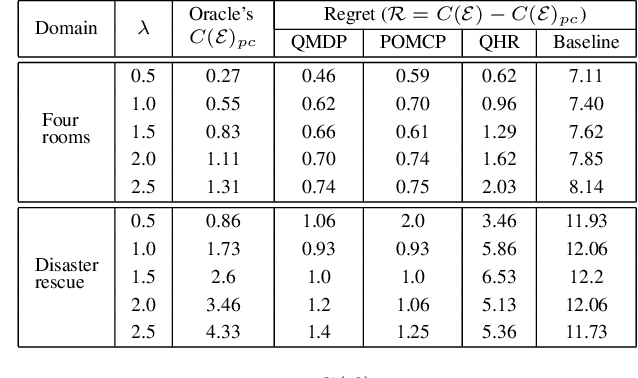Not all users are the same: Providing personalized explanations for sequential decision making problems
Paper and Code
Jun 23, 2021


There is a growing interest in designing autonomous agents that can work alongside humans. Such agents will undoubtedly be expected to explain their behavior and decisions. While generating explanations is an actively researched topic, most works tend to focus on methods that generate explanations that are one size fits all. As in the specifics of the user-model are completely ignored. The handful of works that look at tailoring their explanation to the user's background rely on having specific models of the users (either analytic models or learned labeling models). The goal of this work is thus to propose an end-to-end adaptive explanation generation system that begins by learning the different types of users that the agent could interact with. Then during the interaction with the target user, it is tasked with identifying the type on the fly and adjust its explanations accordingly. The former is achieved by a data-driven clustering approach while for the latter, we compile our explanation generation problem into a POMDP. We demonstrate the usefulness of our system on two domains using state-of-the-art POMDP solvers. We also report the results of a user study that investigates the benefits of providing personalized explanations in a human-robot interaction setting.
 Add to Chrome
Add to Chrome Add to Firefox
Add to Firefox Add to Edge
Add to Edge